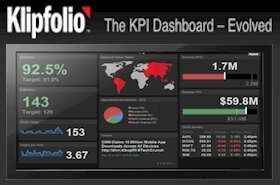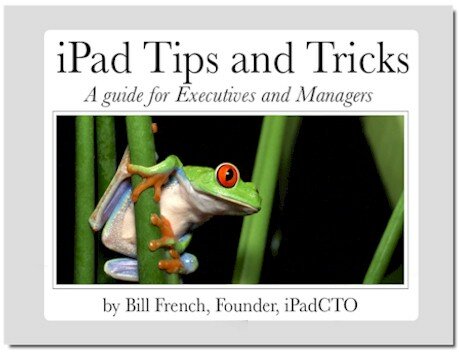At a recent Aberdeen briefing by Andrew Borg, the subject of mobile app advantages surfaced. Survey data taken from 240 enterprises suggest that [overall], the use of mobile apps designed specifically to help employees get their work done, increased productivity by 45%. Further, the data reveals that operational efficiency rises almost as much (44%) when enterprise apps are made available.
These are significant increases in productivity and performance and correlates with other findings including my own non-scientific assessments of iPhone and iPad apps for business use here and here. And there are plenty of other formal and informal studies being conducted to better understand the dynamics of mobile apps and the emerging app-centric enterprise.
Sanju Bansal, chief operating officer of software maker MicroStrategy (MSTR) and provider of a comprehensive mobile BI solution for iPad and iPhone, is never without his Apple iPad. The magical tablet lets him work any time during the day without booting up a laptop to connect to important business intelligence or simply capture an idea and share it with his executive team.
Mobile App Strategies Take On New Importance in All Businesses
The productivity and performance survey data demonstrates why mobile app strategies are taking on an increased importance and gaining momentum in corporate IT and executive suites. But this awareness extends all the way down to the smallest businesses. As a result, it’s not surprising to see how this realization is affecting mobile app strategies in all types of businesses.
The top three mobile strategies, as reported by Aberdeen, and the respective response percentages are:
- Improve communication and collaboration among team members (66%)
- Rapidly deliver actionable information to the point of decision (48%)
- Use mobile software to increase customer intimacy (42%)
With two thirds of enterprise respondents looking at communication and collaboration as a source of possible productivity and performance advantage, it probably makes sense to look closely at off-the-shelf apps that can address these objectives. Box.net snapped into focus when I saw this data. Box (not to be confused with Dropbox) is a well-rounded solution for scalable, secure mobile collaboration. It also provides good organizational features and social media integration for those documents that eventually need to find their way into social networks.
Mobile BI is apparently on a significant upsurge and maps closely to the second most important mobile app strategy on the enterprise drawing board. And there are many to choose from – RoamBI, SAP Business Objects, Oracle Business Indicators, QlikView, and Microstrategy each represent formidable solutions that integrate nicely with popular database sources.
The underlying trend is clear – mobile apps have demonstrated tremendous advantages to business and the




















[...] efficiency by 44% when enterprise wide mobile applications are implemented correctly. The survey cites three main factors that offer the increase in [...]
[...] mobile peut voir la productivité de ses employés augmenter de 45% tel que cité par Wikipedia et iPadCTO. A une briefing chez Aberdeen donné par Andrew Borg, le sujet de l’avantage des [...]
[...] aside from production, it’s also about productivity. An Aberdeen survey of 240 enterprises suggests that the use of mobile apps specifically designed to help employees [...]